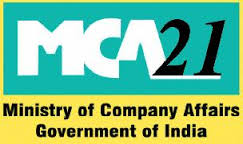
The Institute of Chartered Accountants of India (ICAI) today clarified that, Chartered Accountants joining Unrecognized ‘Networks’ for Professional Work amounts may result in Disciplinary Proceedings.
The ICAI has said that, It has come to the knowledge of the Institute that many members in practice are joining/associating themselves with “Networks” which are other than the Networks registered with the Institute, with the mutual referral of professional work being the main objective of such Networks, among others.
The ICAI has clarified that associations with ‘Network’ as a medium of referral of professional work is permissible only if the Network is registered with the Institute, comprising only of Chartered Accountants/ Chartered Accountant Firms, and governed by the Institute’s Network Guidelines,‟ attention is also drawn towards following provisions of Chartered Accountants Act, 1949:
Clause (2) of Part I of First Schedule to the Act
A Chartered Accountant in practice shall be deemed to be guilty of professional misconduct, if he pays or allows or agrees to pay or allow, directly or indirectly, any share, commission or brokerage in the Fees or profits of his professional business, to any person other than a member of the Institute or a partner or a retired partner or the legal representative of a deceased partner, or a member of any other professional body or with such other persons having such qualifications as may be prescribed, for the purpose of rendering such professional services from time to time in or outside India.
Explanation — In this item, “partner” includes a person residing outside India with whom a chartered accountant in practice has entered into a partnership which is not in contravention of the item (4) of this Part;
Clause (3) of Part I of First Schedule to the Act
A Chartered Accountant in practice shall be deemed to be guilty of professional misconduct, if he accepts or agrees to accept any part of the profits of the professional work of a person who is not a member of the Institute: Provided that nothing herein contained shall be construed as prohibiting a member from entering into profit sharing or other similar arrangements, including receiving any share commission or brokerage in the fees, with a member of such professional body or other person having qualifications, as is referred to in item (2) of this Part;
Clause (5) of Part I of First Schedule to the Act
A Chartered Accountant in practice shall be deemed to be guilty of professional misconduct, if he secures, either through the services of a person who is not an employee of such Chartered Accountant or who is not his partner or by means which are not open to a chartered accountant, any professional business. Provided that nothing herein contained shall be construed as prohibiting any arrangement permitted in terms of items (2), (3) and (4) of this Part;
Clause (6) of Part I of First Schedule to the Act
A Chartered Accountant in practice shall be deemed to be guilty of professional misconduct if he solicits clients or professional work either directly or indirectly by circular, advertisement, personal communication or interview or by any other means: Provided that nothing herein contained shall be construed as preventing or prohibiting – (i) any chartered accountant from applying or requesting for or inviting or securing professional work from another chartered accountant in practice; or
(ii) a member from responding to tenders or enquiries issued by various users of professional services or organisations from time to time and securing professional work as a consequence;
In view of the above provisions, it is not permissible for members in practice to join Networks (by whatever name called) other than the Networks registered with the Institute.
Members may note that joining such Networks as mentioned above may result in noncompliance of the above-stated provisions of the Act resulting in disciplinary proceedings in accordance with the provisions of the Act.
REVISED GUIDELINES OF NETWORK
 The Institute of Chartered Accountants of India (ICAI) today clarified that, Chartered Accountants joining Unrecognized ‘Networks’ for Professional Work amounts may result in Disciplinary Proceedings.
The Institute of Chartered Accountants of India (ICAI) today clarified that, Chartered Accountants joining Unrecognized ‘Networks’ for Professional Work amounts may result in Disciplinary Proceedings. The Institute of Chartered Accountants of India (ICAI) today clarified that, Chartered Accountants joining Unrecognized ‘Networks’ for Professional Work amounts may result in Disciplinary Proceedings.
The Institute of Chartered Accountants of India (ICAI) today clarified that, Chartered Accountants joining Unrecognized ‘Networks’ for Professional Work amounts may result in Disciplinary Proceedings.


